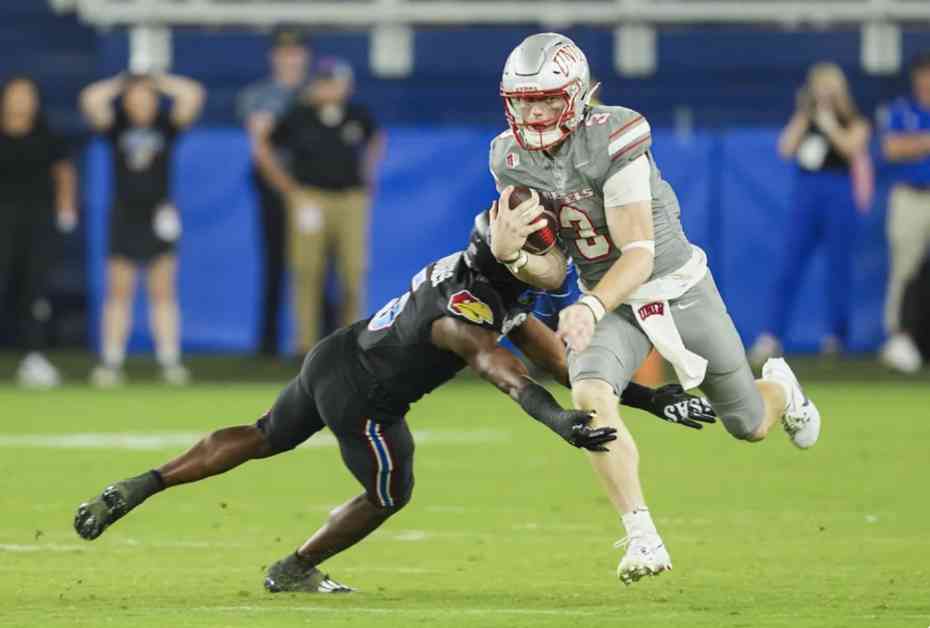UNLV quarterback Matthew Sluka has made headlines recently after announcing his decision to redshirt and sit out the remainder of the season. The talented quarterback had led the Rebels to an undefeated 3-0 start before making the surprising announcement on social media. Sluka cited unfulfilled commitments and discussions with the university as the reasons behind his decision to step away from the team.
The situation took a dramatic turn when reports surfaced claiming that Sluka’s family had hired an agent and felt that his market value had increased after big wins against Houston and Kansas. This led to speculation that Sluka was approached with more lucrative opportunities to transfer, ultimately leading to his decision to leave UNLV. However, conflicting reports emerged regarding the financial arrangements between Sluka and the university.
According to college football analyst Carl Reed Jr., despite Sluka’s claims of unmet financial commitments, the university had fulfilled its obligations to the quarterback. On the other hand, ESPN’s Adam Rittenberg spoke with Sluka’s father, Bob, who alleged that UNLV had failed to compensate his son as promised. Bob claimed that an NIL deal negotiated by Sluka’s agent back in February had not resulted in any payments, leaving his son without the necessary financial support.
The conflicting narratives surrounding Sluka’s departure have raised questions about the treatment of college athletes and the complexities of NIL deals in modern collegiate sports. The incident sheds light on the growing trend of athletes leveraging their market value and exploring alternative options, potentially disrupting the traditional dynamics of college athletics.
The Impact on UNLV
Head coach Barry Odom now faces the challenge of moving forward without his starting quarterback, as Sluka’s departure leaves a significant void in the team’s lineup. The sudden exit of a key player raises concerns about the stability and cohesion of the Rebels’ football program, especially in the midst of a promising season.
UNLV’s athletic department must now navigate the aftermath of Sluka’s departure and address the implications for the team’s performance and reputation. The situation underscores the importance of transparent communication and fair treatment of student-athletes to maintain trust and integrity within the program.
The Future of College Athletics
Sluka’s decision to leave UNLV highlights the evolving landscape of college athletics, where players are increasingly empowered to make choices based on their perceived value and opportunities. The incident raises broader questions about the intersection of amateurism, compensation, and athlete rights in collegiate sports.
As college athletes assert their autonomy and explore new avenues for financial gain, the NCAA faces mounting pressure to adapt its policies and regulations to accommodate the changing dynamics of collegiate sports. The emergence of NIL deals and player empowerment signals a shift towards a more equitable and player-centric model of college athletics.
Navigating the Challenges
Moving forward, UNLV and other collegiate programs must prioritize transparency, fairness, and accountability in their dealings with student-athletes to prevent similar incidents in the future. Clear communication, ethical practices, and respect for player rights are essential to maintaining the integrity and sustainability of college athletics.
As the debate over athlete compensation and rights continues to unfold, stakeholders in college sports must collaborate to establish a framework that balances the interests of athletes, universities, and governing bodies. By addressing the challenges posed by the evolving landscape of collegiate athletics, institutions can uphold the values of sportsmanship, integrity, and respect for all participants.








